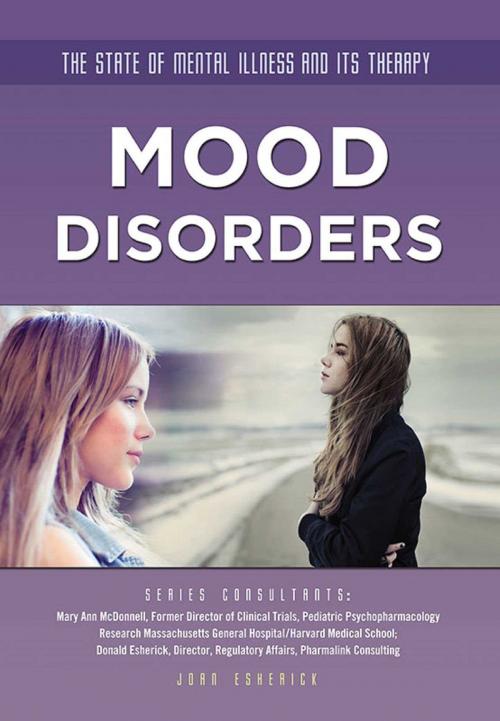Mood Disorders
Kids, School Tools, Social Science, My Family, My Feelings, My Friends, Social Issues| Author: | Joan Esherick | ISBN: | 9781422289907 |
| Publisher: | Mason Crest | Publication: | September 2, 2014 |
| Imprint: | Mason Crest | Language: | English |
| Author: | Joan Esherick |
| ISBN: | 9781422289907 |
| Publisher: | Mason Crest |
| Publication: | September 2, 2014 |
| Imprint: | Mason Crest |
| Language: | English |
Everyone experiences the "blues" now and then as well as times of joy and self-confidence. Most people even experience mood swings—times when they move quickly from feelings like joy to opposite feelings like sorrow. But what happens when normal moods become so extreme that a person can't think, feel, or act appropriately? What if a person is so "up" he does foolish, even dangerous, things? What if he's so "down" he can barely get out of bed? The U.S. Surgeon General reports that, at any one time, between 10 and 15 percent of the adolescent population in the United States suffers from major depression. That's one in ten teens! According to the National Institute of Mental Health, 20 to 40 percent of those will develop bipolar disorder (manic depression) within five years. Often undiagnosed or misdiagnosed, mood disorders present major challenges, such as increased risk for illness, higher probability of social and interpersonal problems, and greater likelihood of substance abuse for those who suffer with them. Mood disorders, when left untreated, can even be fatal: seven percent of adolescents with major depressive disorder commit suicide. What are mood disorders, and how can they be treated? Using numerous case studies and sidebars, and written in language that is easy to understand, Mood Disorders takes a comprehensive look at the causes and symptoms of mood disorders. In its pages, you will learn about the methods for diagnosis and treatment, specific drugs used to treat mood disorders, and alternative treatment strategies. Along the way, you will discover that mood disorders, though serious and challenging, are treatable, and help can be found.
Everyone experiences the "blues" now and then as well as times of joy and self-confidence. Most people even experience mood swings—times when they move quickly from feelings like joy to opposite feelings like sorrow. But what happens when normal moods become so extreme that a person can't think, feel, or act appropriately? What if a person is so "up" he does foolish, even dangerous, things? What if he's so "down" he can barely get out of bed? The U.S. Surgeon General reports that, at any one time, between 10 and 15 percent of the adolescent population in the United States suffers from major depression. That's one in ten teens! According to the National Institute of Mental Health, 20 to 40 percent of those will develop bipolar disorder (manic depression) within five years. Often undiagnosed or misdiagnosed, mood disorders present major challenges, such as increased risk for illness, higher probability of social and interpersonal problems, and greater likelihood of substance abuse for those who suffer with them. Mood disorders, when left untreated, can even be fatal: seven percent of adolescents with major depressive disorder commit suicide. What are mood disorders, and how can they be treated? Using numerous case studies and sidebars, and written in language that is easy to understand, Mood Disorders takes a comprehensive look at the causes and symptoms of mood disorders. In its pages, you will learn about the methods for diagnosis and treatment, specific drugs used to treat mood disorders, and alternative treatment strategies. Along the way, you will discover that mood disorders, though serious and challenging, are treatable, and help can be found.















